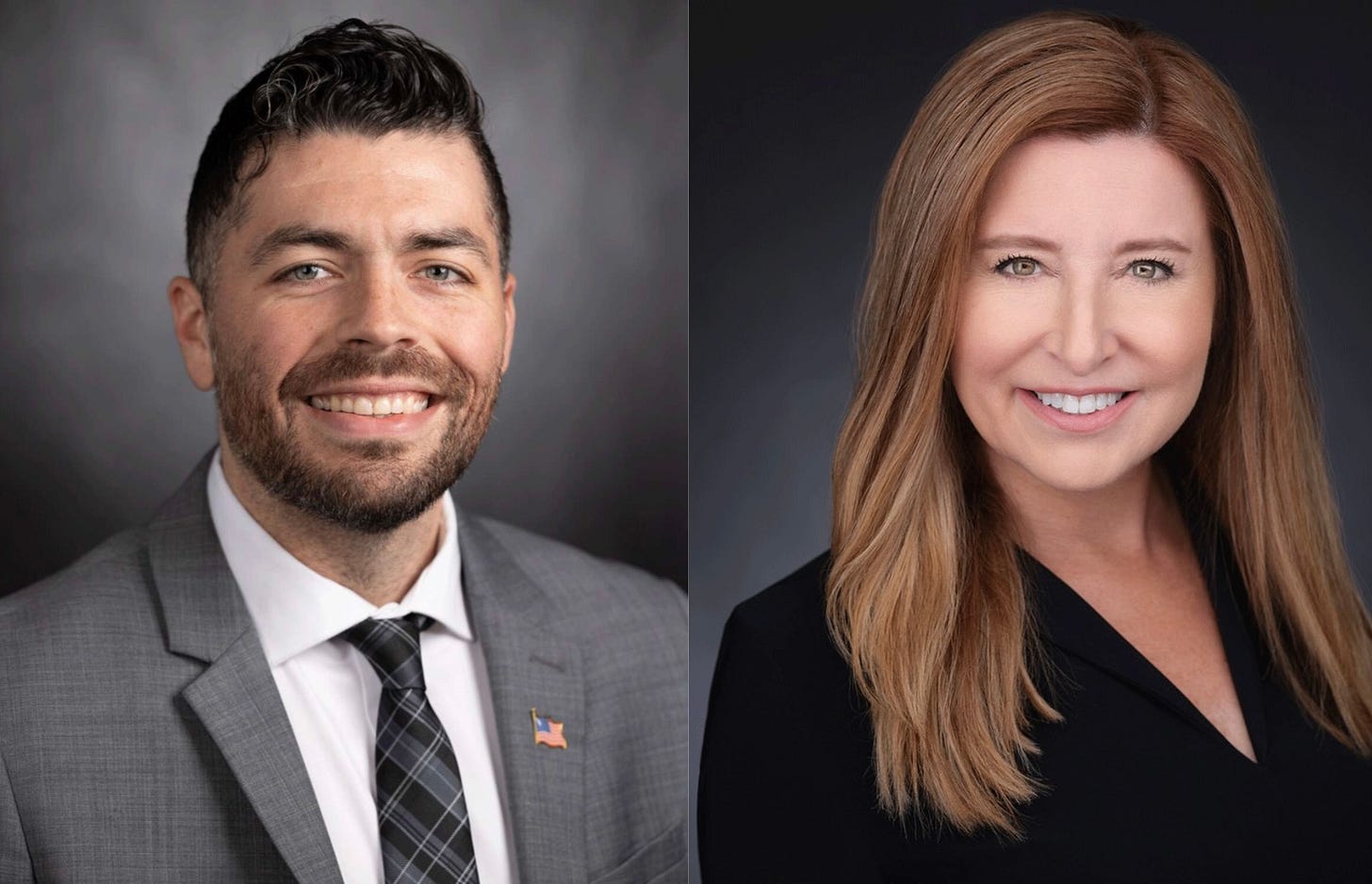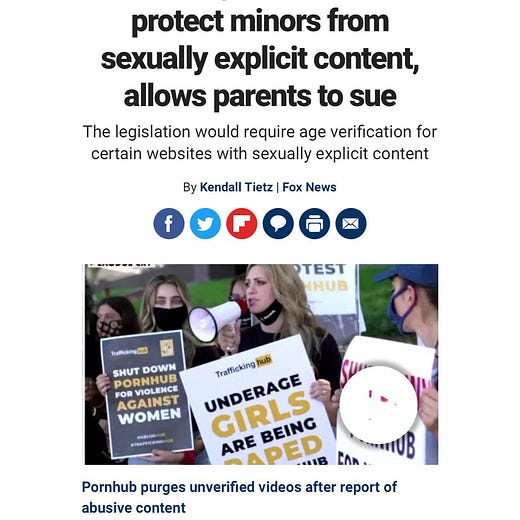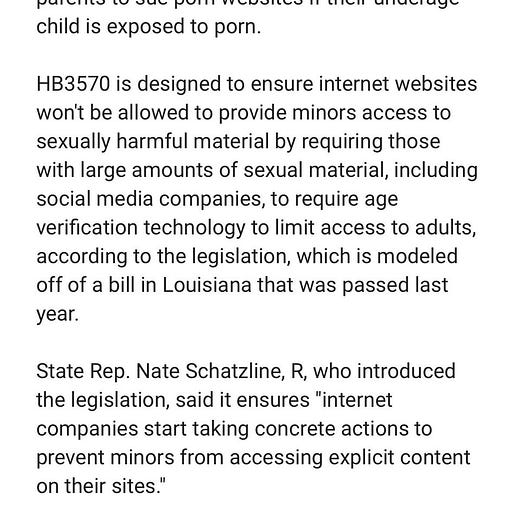Texas Republicans Taking Steps to Ban Pornography
The good ones, anyway.
After one generation of universal internet access, we have learned that chronic masturbation is probably worse than a herion addiction.
Two years ago we highlighted a House Resolution by Valoree Swanson to proclaim that pornography was a public health emergency. In 2023, Texas has taken a few steps backwards and the House recently dedicated Valentine’s Day to an assortment of gay sex corporate interest groups . Many people said the resolution was a threatening reminder that any efforts to restrict the promotion of gay sex to children will be met with economic warfare by multinational corporations.

However, it’s undeniable that pornography is a much bigger problem than these alphabet people, because without unlimited free pornography on demand, you wouldn’t have a society that would tolerate these people running amok.
Two Republican Representatives filed a bill that will put us on the slippery slope to a total ban on pornography for reasons of public health.
Yes, you read right—the slope is slippery and we are actively covering it with lube.
Nate Schatzline and Terri Leo-Wilson filed the exact same bill on the same day (weird but ok) that would create grounds for legal action against porn sites that do not require visitors to take certain steps to verify they are 18 years or older before displaying smut to the viewer.
The Good
This is a complicated issue, as the justification for allowing pornography to proliferate has been that it is “free speech” or that it is “freedom” for sex tapes to be uploaded and distributed showing everyone’s daughters. Basically, we have to start somewhere, and this bill is somewhere.
The bill would make entities disseminating pornography legally liable for not properly verifying ages.
Demands strict privacy and for personal data to be erased after verification.
Would not affect non-porn sites, using “1/3 of content” as the demarkation for its application. (If 1/3 or more of your material is porn, you are a porn site)
The Bad
Damages awarded to victims of noncompliant porn sites is not specified, which is problematic for a number of reasons.
How do you determine the monetary damages of a kid looking at pornography? That is a legal mountain to climb, and you’re going to need a pretty extreme case to get any money. Lawyer fees and a few trivial awards may not be enough for these billion-dollar sites to fully comply.
Search engines are exempt.
Kids can just type “bobs n vagena” into Google and they will be flooded with porn. This is one hell of a loophole.
Internet service providers are exempt.
This is where you should target if you want a more effective deterrent.
I like to use the example of child pornography to showcase that it is actually very easy to block porn from being easily accessed. I haven’t tried it out, but I imagine you cannot just search Google for “child porn” and get the same success you get with adult porn. The same incentives that make this possible can be expanded.
This is a good start.
Your sex life is not politics. If we want a serious government with serious people in it, we can’t welcome people whose underlying special interest is to tell you about the weird sex they like to have. All of these sex-based agendas are heads from the same hydra.
We know what we must do politically regarding problems in society such as “hardcore sex everywhere.” We have a book that gives most of the answers.









Everyone needs to put a reminder on their calendar with a link to this article, dated roughly between November and March during primary season: so you can all go ask your rep why this bill wasn’t a priority, and why it (won’t) didn’t make it out of committee, especially when “stop sexualizing Texas kids” is a RPT legislative priority this session 😐
When your rep doesn’t have a good answer (because they won’t) it’s time to vote for literally any primary challenger they have, or undervote them if they don’t have a challenger.
We, who love our children--our future generations, need to support this bill! We need to support those evil issues and ungodly people who try to poison our youth with pornography from every side! It is a shame when we see adult "Drag Queens" wanting to entice children into their world. What decent, God-fearing Christian parent wants that for his/her child? Only if we God-fearing Christians will give support to these bills that will work to put a stop to pornography from every side can we see an end to it. Help to support these bills and to let your/our legislative representatives and senators know where we stand!